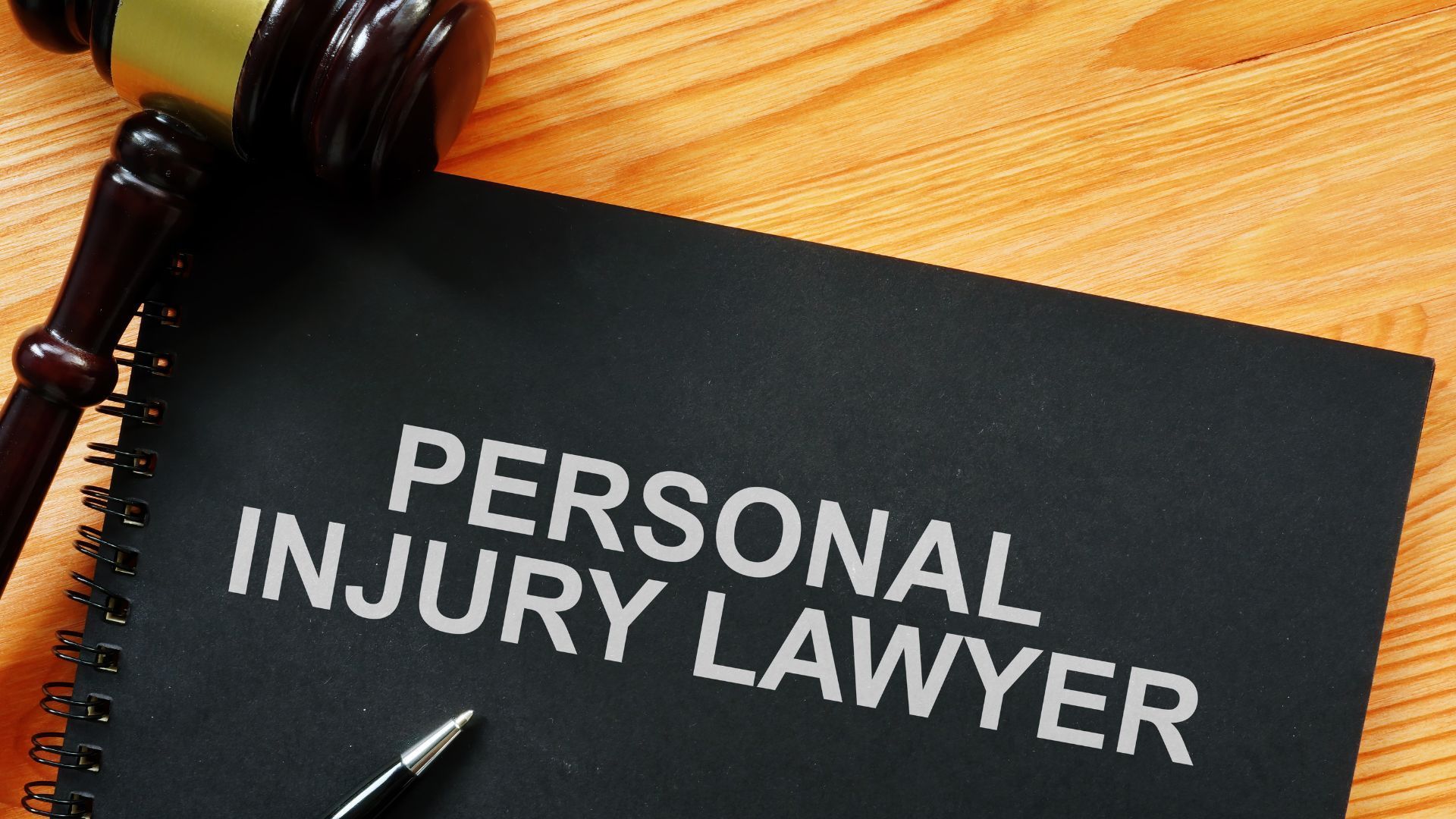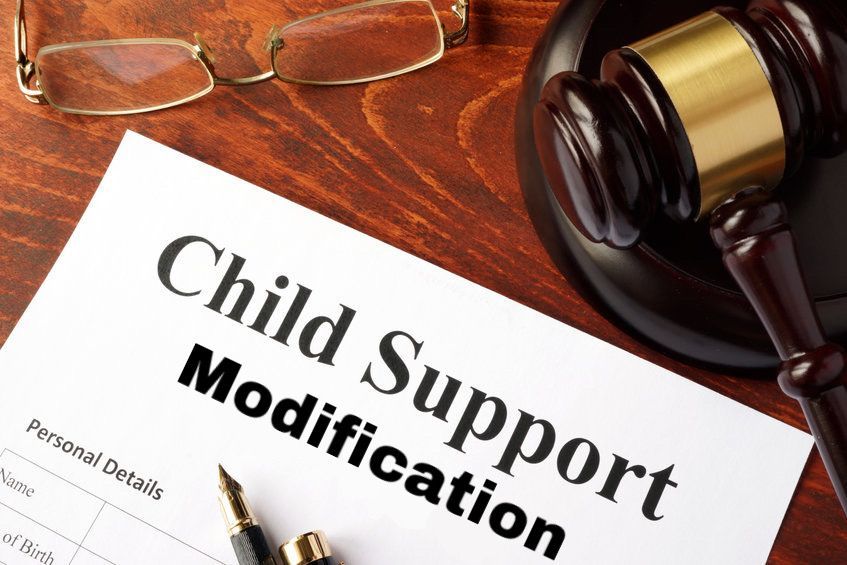Avoid These Common Mistakes in Injury Claims
Every year, thousands of claimants lose significant compensation by making avoidable errors in their personal injury claims. Understanding these pitfalls protects your right to fair recovery and guides you toward stronger case outcomes. This article, drawn from the expertise of seasoned Rhode Island attorneys at ITW Law, maps out the most common mistakes—missing deadlines, poor evidence collection, unguarded insurer negotiations, premature settlements, treatment delays, social media missteps—and shows how statute knowledge, thorough documentation, skilled negotiation, timely legal help, and proactive medical care work together to secure maximum compensation.
What Are the Most Common Mistakes to Avoid in Personal Injury Claims?
The most common mistakes in personal injury claims involve missing the statute of limitations, failing to document evidence, speaking to insurance adjusters without counsel, accepting the first settlement offer too quickly, delaying medical treatment, and misusing social media. Recognizing these errors early lays the groundwork for a successful claim.
Why Is Missing the Statute of Limitations a Critical Error?
Missing the statute of limitations bars your right to file a lawsuit, eliminating potential compensation, no matter how valid your injuries are. A statute of limitations error occurs when a claimant waits past the legally mandated deadline, allowing the defendant to request dismissal. Claimants should avoid this mistake by tracking critical dates and filing timely paperwork, which preserves the right to pursue medical bills, lost wages, and pain-and-suffering damages.
Properly managing deadlines sets the stage for collecting persuasive evidence in support of your claim.
How Does Failing to Document Evidence Hurt Your Injury Claim?
Failing to document evidence undermines proof of negligence and damages, reducing settlement value and trial leverage. Evidence collection encompasses photos of the scene, medical records, witness statements, and repair estimates. Without detailed documentation, insurers question the severity of injuries and may dispute liability, resulting in lower offers or outright denials.
Maintaining clear records transitions naturally into understanding negotiation tactics with insurance companies.
What Risks Come from Speaking to Insurance Adjusters Without a Lawyer?
Speaking to insurance adjusters without legal counsel risks self-incrimination and undervaluation of your claim. Adjusters often use recorded statements to identify inconsistencies and minimize payouts.
Having a personal injury lawyer present ensures that communications focus on facts and that nothing inadvertently harms your compensation prospects.
Why Is Accepting the First Settlement Offer Too Quickly a Mistake?
Accepting the first settlement offer too quickly often means settling for far less than full compensation. Insurers typically make low initial offers to close claims swiftly. Without a lawyer to analyze future medical costs, lost earning potential, and non-economic damages, claimants may forfeit thousands in rightful compensation.
Understanding long-term costs paves the way to timely medical treatment, which strengthens your case.
How Can Delaying Medical Treatment Impact Your Claim?
Delaying medical treatment weakens credibility and invites insurer challenges to causation and injury severity. Prompt treatment not only supports health outcomes but also generates contemporaneous medical records that document injuries and prescribed care. Later gaps in treatment create questions about injury authenticity, limiting compensation for ongoing care.
What Are the Dangers of Social Media Use During Your Injury Case?
Social media posts can jeopardize your claim by contradicting injury reports or suggesting activities you claimed to avoid. Insurers monitor profiles for evidence of inconsistency—such as photos of you playing sports after reporting debilitating pain—which they use to depreciate settlements. Observant online conduct and strict privacy settings protect your credibility and compensation prospects.
How Does Understanding the Statute of Limitations Protect Your Injury Claim?
Understanding the statute of limitations ensures you file within legal deadlines, preserving your right to pursue damages for medical expenses, lost wages, and pain and suffering. Knowing exact deadlines by state guards against dismissal and forces timely case preparation.
What Is the Statute of Limitations and Why Does It Matter?
The statute of limitations is the legally defined timeframe during which you must file a lawsuit, typically three years for personal injury claims in Rhode Island. Missing this deadline results in courts refusing to hear your case, regardless of fault or damages. Adhering to this deadline compels early evidence gathering and strengthens your negotiation position with insurers.
Ensuring timely filing naturally leads to exploring how these deadlines vary across states.
How Do Statute of Limitations Deadlines Vary by State?
Different jurisdictions impose varying filing deadlines and exceptions that claimants must navigate diligently. Below is a sample of state deadlines:
| State | Deadline Length | Common Exception |
|---|---|---|
| Rhode Island | 3 years from the incident | 120 days for government suits |
| California | 2 years from injury | 6 months against a public entity |
| New York | 3 years from injury | Discovery rule for latent harms |
These variations demonstrate the necessity of state-specific knowledge to prevent a limitations error and to schedule evidence collection promptly.
What Exceptions Can Extend Your Filing Deadline?
Exceptions such as the discovery rule, minority status, and government claim notice requirements can extend deadlines beyond standard timeframes. The discovery rule delays the start of the limitations period until you reasonably learn of an injury’s cause, while minor claimants gain extra filing time after reaching adulthood. Understanding these exceptions keeps your claim alive when unusual circumstances arise.
Appreciating extensions highlights the consequences of missing the deadline altogether.
What Happens If You Miss the Statute of Limitations?
Missing the statute of limitations permanently bars your claim, meaning even clear liability and significant damages cannot be pursued. Courts dismiss late filings, leaving you responsible for medical bills and lost wages without recovery. Avoiding this outcome preserves your right to full compensation and underscores the value of proactive legal oversight.
Ensuring deadlines are met illustrates how a lawyer can safeguard your filing schedule.
How Can a Personal Injury Lawyer Help Ensure Timely Filing?
A personal injury lawyer tracks statutory deadlines, prepares and submits all necessary paperwork, and manages extensions when exceptions apply. Legal representation provides expert guidance on notice requirements for government entities and reduces the risk of administrative errors. This proactive management secures your right to compensation and maintains momentum in building a strong case.
Why Is Thorough Documentation Essential for a Successful Injury Claim?

Thorough documentation transforms subjective injury reports into persuasive evidence, supporting negligence, causation, and damage calculations. Comprehensive records reduce disputes, accelerate settlements, and maximize compensation for all categories of loss.
What Types of Evidence Should You Collect After an Accident?
Effective evidence collection covers visual, medical, and testimonial records to capture liability and damages.
- Photographs of the scene, hazards, and injuries
- Detailed medical records, imaging reports, and treatment notes
- Witness statements with contact information
- Police reports and official incident records
- Repair bills, prescription receipts, and wage statements
Collecting these records establishes factual clarity and bolsters settlement leverage.
How Do Proper Medical Records Support Your Claim?
Medical records document the nature, extent, and treatment of your injuries, directly linking care recommendations to accident trauma. Physician notes, diagnostic imaging, and therapy logs create a medical timeline that insurers rely on to verify injury severity. This documentation underpins accurate damage valuations for current and future medical costs.
What Are the Best Practices for Maintaining Evidence Integrity?
Maintaining evidence integrity requires organized storage, unaltered originals, and clear labeling of dates and sources. Keep physical records in a single folder, back up digital photos with timestamps, and maintain chain-of-custody logs for media evidence. Preserving authenticity prevents insurer challenges and reinforces your case’s credibility.
How Can Poor Documentation Lead to Claim Denial or Reduced Compensation?
Poor documentation invites insurer skepticism, delayed investigations, and lowball offers. Missing photos fail to show hazard severity, incomplete medical records leave injury links unproven, and absent wage records undermine lost-income calculations. Inadequate evidence can lead to denied claims or settlements far below actual losses.
How Can You Effectively Negotiate with Insurance Companies to Avoid Common Pitfalls?
Effective negotiation with insurance companies demands knowledge of adjuster strategies, strategic responses to low offers, and the timing to reject inadequate settlements. Mastering these elements improves settlement outcomes and protects your rights.
What Tactics Do Insurance Adjusters Use to Minimize Your Settlement?
Insurance adjusters employ tactics such as offering quick, lowball settlements, requesting recorded statements, disputing causation, and downplaying long-term effects. They may delay claims processing to pressure acceptance and use gaps in evidence to question damages. Recognizing these tactics allows you to respond confidently and demand fair valuation.
Why Should You Avoid Direct Communication Without Legal Counsel?
Direct communication without counsel increases the risk of inadvertent admissions and unguarded statements that insurers use to deny or reduce claims. A lawyer frames all discussions around documented facts, protects your rights under insurance policy provisions, and negotiates from a position of legal strength. This approach enhances trustworthiness and bargaining leverage.
How Do You Evaluate and Respond to Settlement Offers?
Evaluating settlement offers involves comparing proposed amounts to detailed damage calculations—including future medical costs, lost earning capacity, and non-economic damages. Respond with a counteroffer supported by evidence, demand written explanations for any reductions, and set clear deadlines for insurer responses. This structured process underscores your preparedness and resolve.
When Is It Best to Reject a Low Settlement and Pursue Further Action?
Reject a low settlement when it fails to cover anticipated medical expenses, future care needs, or non-economic harms. If insurer negotiations stall or undervalue your losses, pursue litigation to compel full discovery and trial leverage. Legal representation guides this decision by estimating case value based on injury severity and comparable verdicts.
When Should You Hire a Personal Injury Lawyer to Prevent Claim Mistakes?

Hiring a personal injury lawyer early ensures guidance on deadlines, evidence collection, and negotiation tactics from the outset. Legal representation improves case outcomes, shields you from insurer pitfalls, and maximizes compensation.
What Are the Benefits of Legal Representation in Injury Claims?
- Expert case evaluation and damage estimation
- Professional management of filing deadlines and court procedures
- Strategic evidence gathering and review by medical specialists
- High-impact negotiation and advocacy with insurers
- Access to litigation resources when settlement fails
These benefits enhance settlement value by up to three times compared to unrepresented claimants.
How Does a Lawyer Protect You from Insurance Company Tactics?
A lawyer intercepts and manages all communications, disputes improper evidence attacks, and enforces policy obligations. Legal counsel applies pressure through demand letters, leverages discovery tools, and ensures adjusters comply with fair-practice regulations. This protection preserves your claim’s integrity and boosts trust in your case strength.
What Is the Process for a Free Consultation with a Personal Injury Attorney?
A free consultation begins with an initial case review where you share incident details, medical records, and communications from insurers. The attorney assesses liability, estimates damages, and outlines legal strategies. This meeting clarifies next steps—such as evidence collection plans and filing deadlines—at no upfront cost.
How Does Hiring a Lawyer Impact Your Settlement Outcome?
Legal representation drives higher settlements by presenting robust case analyses, leveraging court filing options, and demonstrating trial readiness. Studies show that represented claimants secure significantly larger awards, with average settlements rising from under $20,000 to over $55,000 when counsel is involved.
What Are the Common Social Media Mistakes That Jeopardize Injury Claims?
Common social media mistakes include posting injury-inconsistent activities, geotags near accident sites, commenting on case details, and accepting new friend requests that expose private information.
How Can Social Media Posts Harm Your Personal Injury Case?
Social media posts showing vigorous activities—like hiking or sports—after reporting debilitating injuries create evidence contradictions. Insurers screenshot posts to undermine injury severity and reduce offers. By avoiding public disclosures of case details and injury status, you maintain consistency with medical documentation.
What Privacy Settings and Online Conduct Should You Follow?
Set all profiles to private, disable location tagging, avoid commenting on case status, and decline friend requests from unknown contacts. Share updates only with direct family in secure channels. These precautions minimize evidence that insurers can exploit and preserve your case integrity.
Are There Examples of Social Media Causing Claim Denials?
In one scenario, a claimant’s Facebook video of dancing at a wedding contradicted neck injury claims and led to a denial of non-economic damages. In another case, a photo posted hiking six weeks after surgery prompted an insurer to demand a recorded statement that diminished future care compensation. These examples illustrate the high stakes of online activity.
How Does Prompt Medical Treatment Influence the Success of Your Injury Claim?
Prompt medical treatment legitimizes your injuries, creates an official record of care recommendations, and supports causation between the incident and your medical needs. Early treatment enhances health outcomes and strengthens claims by documenting immediate professional assessments.
Why Is Immediate Medical Attention Vital After an Accident?
Immediate medical attention identifies hidden injuries, begins necessary treatments, and produces diagnostic records that insurers trust. Emergency room visits, urgent care assessments, and follow-up appointments create a timeline linking accident impact to specific injuries and required therapies.
How Does Following a Doctor’s Orders Affect Your Compensation?
Following doctor’s orders—such as attending all appointments, completing physical therapy, and adhering to medication regimens—demonstrates injury seriousness and compliance with medical advice. Insurers view consistent treatment as evidence of genuine need and adjust settlement valuations upward to cover ongoing care.
What Are the Consequences of Delayed or Ignored Medical Care?
Delaying or ignoring medical care creates gaps that fuel insurer challenges to injury causation and severity. Without continuous records, adjusters argue alternative injury sources or minor initial effects, leading to reduced compensation or claim denial. Timely treatment ensures a credible medical narrative for your claim.
What Steps Can You Take to Protect Your Personal Injury Claim from Common Errors?
Creating a structured approach to your claim minimizes mistakes and elevates your compensation prospects. The following steps outline a practical roadmap from day one through resolution.
Checklist of Essential Actions:
- Create a personal injury claim checklist that tracks incident details, evidence collection steps, and filing deadlines.
- Follow key do’s and don’ts after an accident—seek medical care immediately, don’t admit fault, avoid social media disclosures, and preserve all documentation.
- Seek expert legal guidance early to navigate deadlines, evidence requirements, and negotiation tactics.
- Access additional resources—state bar referral services, medical specialist directories, and insurance consumer protection guides—to support your claim process.
This structured strategy integrates legal, medical, and organizational best practices to prevent common errors and maximize your compensation.
Hiring seasoned Rhode Island attorneys from ITW Law ensures that every step—from meeting deadlines to negotiating with insurers—is handled expertly, reinforcing your claim’s strength and securing the compensation you deserve.
Injuries and insurance disputes carry complex deadlines and evidentiary requirements, but avoiding these common pitfalls preserves your rights and enhances your recovery. By combining timely medical care, thorough documentation, strategic negotiation, and skilled legal representation, you build a resilient claim foundation. Take action today to protect your personal injury claim and maximize compensation with confidence.











